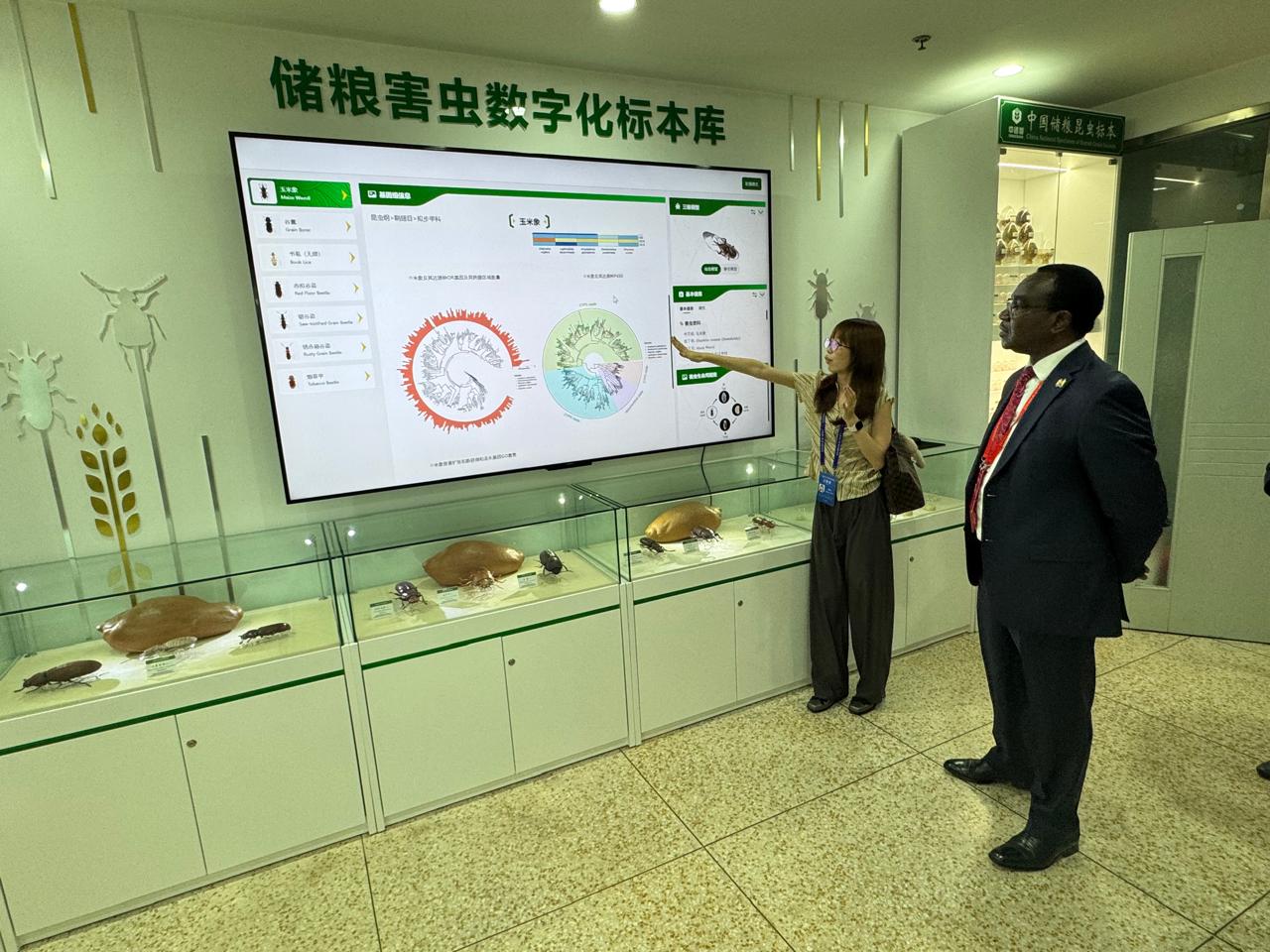

The visit took place on the sidelines of the Second Belt and Road Conference on Science, Technology and Innovation, which brought together scientists, policymakers, and innovators from around the world to discuss collaborative strategies for sustainable development.
Key focus areas included agriculture, health, and digital innovation. Located in Chengdu, China, the Sinograin Chengdu Research Storage Institute is a globally recognized center for research and innovation in grain storage.
The institute has earned international praise for reducing post-harvest grain loss in China from 8–10 per cent to below two per cent, thanks to advanced, long-term storage solutions.
“About 20 years ago, farmers in China were losing between 8–10 per cent of their grain harvest due to poor storage,” CS Migos said.
“Through focused research and innovation in grain storage, these losses have since been reduced to under two per cent.”
Migos noted that Kenya stands to benefit significantly from such technological and research-based models.
“Kenya can draw valuable insights from such models as we continue to strengthen our own research capacity and pursue practical, locally driven solutions to improve food security and agricultural resilience,” he said.
The Education CS praised the institute as a strong example of how science and research can directly tackle real-life challenges in agriculture.
“The Institute is a powerful example of how science, research, and innovation can be applied to address real-life challenges,” he noted.
“It has demonstrated the critical role that educational and research institutions can play in achieving sustainability by producing relevant research outputs and successfully commercialising their innovations.”
Kenya is currently seeking to adopt advanced grain storage technologies to curb post-harvest losses and boost food security amid climate change and population growth pressures.













